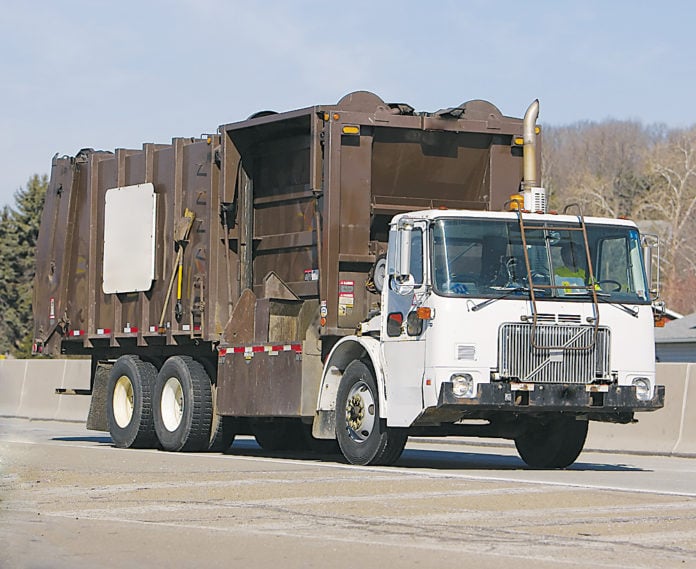Dozens of small local waste-hauling companies are concerned about revisions to a local air quality rule requiring them to speed up replacement of their old diesel trucks with new alternative fuel trucks.
The changes, adopted in July by the South Coast Air Quality Management District governing board, are part of an update to a 10-year-old rule requiring cleaner waste-hauling trucks that can cost up to $320,000 each.
Engine manufacturers had challenged the original rule in court. The case went all the way to the U.S. Supreme Court, which ruled that the air district regulation was pre-empted by less stringent provisions of the federal Clean Air Act. As a result of that ruling, and subsequent legal rulings and settlements, the air district was required to revise its rule.
But small waste haulers objected to the revisions because their deadlines were moved up.
“They initially were going to give small waste haulers only five years to completely change out their fleets, which amounts to 20 percent turnover each year,” said Ron Saldana, executive director of the Los Angeles County Disposal Association, which represents about 40 small waste haulers. “We were pushing for a 10-year timetable.”
The district’s governing board agreed to give small haulers that could demonstrate financial hardship two more years to comply, for a total of seven years. The clock will start ticking in 2011.
“This will help somewhat, but it still doesn’t address the problem of how these small haulers are going to be able to come up with $500,000 or more each year to replace their trucks,” Saldana said.
Large waste haulers can rely on guaranteed municipal contracts as collateral when they seek financing for their fleet conversions. But Saldana said small haulers often don’t have those guaranteed revenue streams. Furthermore, state law prevents them from selling the older diesel trucks so they have to scrap them. And a state grant program to help with purchases of cleaner trucks often runs out of funds, he said.
Movie Magic
Hundreds of local film production companies could soon get tax breaks.
That’s because a Los Angeles City Council committee last week approved a measure that charges productions of up to $5 million a flat fee of $145. Previously, only productions of $2.5 million qualified for the flat rate.
The measure is one of several proposed to reduce business taxes in Los Angeles in response to criticism that the city’s high tax rates are driving away companies and production.
Under current rules, once productions surpass $2.5 million the tax goes up from the $145 flat fee by $1.30 for each additional $1,000 in production value to a maximum of $3,250.
The measure was recommended by the private sector Business Tax Advisory Committee and introduced by Councilman Richard Alarcon, who estimates it will directly save an estimated 535 commercial production companies – mostly in television commercial production – thousands of dollars each.
“These tax cuts will help local production companies create jobs and boost the local economy,” Stuart Waldman, president of the Valley Industry and Commerce Association, said in a statement after the July 27 vote of the Jobs and Business Development Committee.
The measure will go to the full council for adoption in September or soon after.
Extension Time
The state Board of Equalization has begun granting sales-tax payment extensions for state contractors and vendors who have not been paid because the state has not passed a budget.
California’s fiscal year began July 1; without a budget in place, the state can’t pay most vendors or contractors.
Budget negotiations have stalled. Republicans, backed by Gov. Arnold Schwarzenegger, have insisted that a budget have no new taxes and contain pension reforms. Democrats have balked at making further cuts. The projected deficit is $19 billion.
The BOE also granted extensions last year, when the state issued IOUs for a month instead of checks.
To request an extension on filing a sales and use tax return with the state Board of Equalization, businesses must make a request in writing to the BOE; requests must be received by the last day of the month after the month in which a budget is adopted. Forms are available on the BOE’s website at www.boe.ca.gov.
Staff reporter Howard Fine can be reached at [email protected] or at (323) 549-5225, ext. 227.

